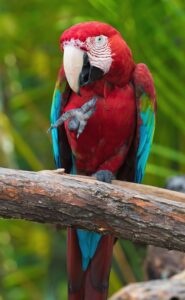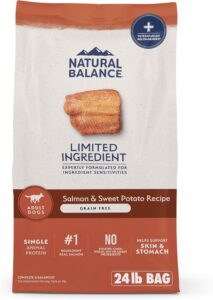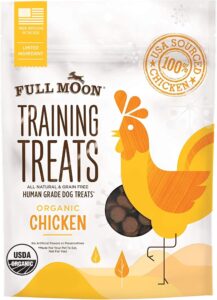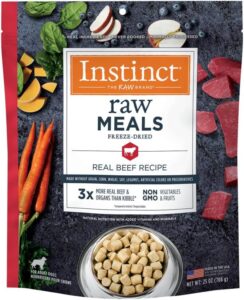
Introduction
Birds are among the most diverse and fascinating creatures on the planet, known for their vibrant plumage, melodious songs, and remarkable ability to fly. With over 10,000 species worldwide, birds have adapted to a wide range of habitats and diets. One common dietary component for many bird species is fruit. But can birds safely eat fruits? This article delves into the relationship between birds and fruits, highlighting which fruits are beneficial, which should be avoided, and how fruits impact avian health.
The Importance of Fruit in Avian Diets
Fruits are a crucial dietary component for many bird species, particularly those that thrive in tropical and subtropical regions. These regions are rich in fruit-bearing plants, offering an abundant food source for birds. Fruits provide essential nutrients, including vitamins, minerals, and antioxidants, which are vital for maintaining a bird’s health and well-being. Furthermore, fruits are a significant energy source, thanks to their natural sugars, making them an ideal food for birds that require high energy levels for activities like flying.
Nutritional Benefits of Fruits for Birds
Fruits contain a variety of nutrients that are beneficial to birds. Some of the key nutrients found in fruits include:
- Vitamins: Fruits are an excellent source of vitamins such as vitamin A, vitamin C, and several B vitamins. Vitamin A is essential for maintaining a bird’s vision and immune system, while vitamin C plays a role in tissue repair and antioxidant protection.
- Minerals: Fruits provide important minerals like potassium, magnesium, and calcium, which help regulate fluid balance, muscle function, and bone health.
- Antioxidants: Many fruits contain antioxidants that help protect cells from damage caused by free radicals, supporting overall health and longevity.
- Fiber: The fiber content in fruits aids in digestion, ensuring smooth and efficient nutrient absorption.
Fruits That Birds Can Safely Eat
While many fruits are beneficial to birds, some are particularly safe and nutritious. Here are some fruits commonly included in avian diets:
- Apples: Apples are a popular fruit among birds, offering a good source of vitamins A and C. However, it’s important to remove the seeds, as they contain cyanide, which can be toxic to birds.
- Berries: Strawberries, blueberries, raspberries, and blackberries are rich in antioxidants and vitamins, making them an excellent choice for birds.
- Bananas: Bananas provide potassium and vitamin B6, both of which are essential for birds’ overall health. Their soft texture makes them easy for birds to eat.
- Grapes: Grapes are hydrating and contain natural sugars that provide a quick energy boost for birds.
- Pears: Like apples, pears are a good source of fiber and vitamin C. Be sure to remove the seeds to avoid cyanide exposure.
Fruits to Avoid Feeding Birds
While many fruits are safe for birds, some can be harmful or even toxic. Here are a few fruits to avoid feeding birds:
- Avocado: Avocado contains persin, a compound that can be toxic to birds, leading to respiratory distress and heart failure.
- Cherries: The seeds and pits of cherries contain cyanide, which can be lethal if ingested by birds.
- Rhubarb: Rhubarb leaves contain oxalic acid, which is toxic to birds and can cause kidney damage.
- Stone Fruits: Fruits like peaches, plums, and apricots have pits that contain cyanide and should not be given to birds.
How to Safely Prepare Fruits for Birds
Proper preparation is essential to ensure the safety and nutritional value of fruits for birds. Here are some guidelines for preparing fruits for avian consumption:
- Wash Thoroughly: Always wash fruits thoroughly to remove pesticides, dirt, and other contaminants.
- Remove Seeds and Pits: As mentioned earlier, seeds and pits can contain toxic compounds. Remove them before offering fruits to birds.
- Cut into Appropriate Sizes: Cut the fruits into bite-sized pieces to make them easier for birds to consume.
- Serve Fresh: Offer fresh fruits to ensure maximum nutritional benefits. Avoid feeding birds spoiled or overripe fruits.
Impact of Fruits on Bird Behavior and Ecology
Fruits play a significant role in shaping bird behavior and ecology. The availability of fruits influences migratory patterns, breeding seasons, and social interactions among birds. Here are some ways fruits impact avian behavior and ecology:
- Migratory Patterns: Many bird species migrate to regions with abundant fruit supplies, ensuring they have enough food to sustain their journey and breeding activities.
- Breeding Seasons: The presence of fruits can trigger breeding behaviors in some bird species, as they provide the necessary nutrients for egg production and chick development.
- Social Interactions: Birds often congregate around fruit-bearing trees, leading to increased social interactions and opportunities for mating and communication.
Conclusion
In conclusion, fruits are an integral part of the diet for many bird species, offering a plethora of nutrients that support their health, energy levels, and overall well-being. While most fruits are safe for birds, it’s crucial to be aware of those that can be harmful or toxic. By providing a variety of safe fruits and preparing them properly, bird enthusiasts can ensure that their feathered friends enjoy a nutritious diet that enhances their quality of life. Understanding the role of fruits in bird diets also offers insights into avian behavior and ecology, highlighting the intricate connections between birds and their environment.
#ChatGPT assisted in the creation of this article.








